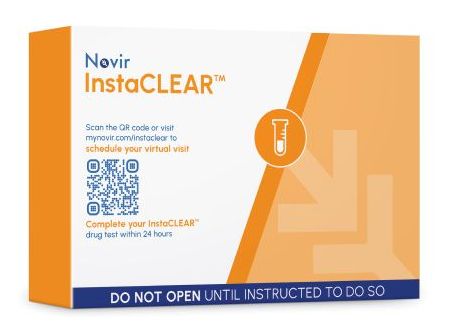Drug testing donor consent plays a crucial role for many organizations, especially in the transportation industry. The Department of Transportation (DOT) enforces strict regulations on drug testing donor consent to ensure safety. These rules protect both employees and the public. However, understanding donor consent can be challenging.
What is DOT Drug Testing?
The DOT established a drug testing program to prevent impairment in safety-sensitive positions. Employees in these roles include commercial drivers, pilots, and railroad workers. The DOT requires drug testing for several reasons, including:
- Pre-Employment
- Random
- Post-Accident
- Reasonable Suspicion
- Return To Duty
- Follow-Up
Additionally, many non-DOT employers adopt similar drug testing practices to maintain workplace safety.
What is Donor Consent?
Donor consent refers to an individual’s voluntary agreement to undergo drug testing. In non-regulated drug and alcohol testing, employees often must provide consent before testing. Without it, the test cannot proceed.
Donor consent ensures employees understand and agree to the testing process. It protects their rights and promotes fairness. When required, employees must sign an agreement before testing. In many cases, pre-employment drug tests depend on this consent. Companies frequently outline drug testing requirements in their policies to ensure compliance.
Consulting an employment law professional provides clarity on consent requirements. Many experts argue that submitting to a drug test implies consent. Employers often require drug tests as a hiring condition. By taking the test, employees give implied consent to test their urine, blood, or hair for drugs.
When Is Donor Consent Required?
In non-DOT workplaces, donor consent is typically necessary. Employers mandate drug-free policies to maintain safety, particularly in industries such as healthcare, sports, and education.
Employers require donor consent to ensure employees fully understand the test’s purpose. A written agreement outlines test terms, including:
- Drugs being tested
- Consequences of a positive result
- Employee rights in the testing process
Legal requirements for donor consent vary by industry and jurisdiction, making it essential for employers to follow specific regulations.
Donor Consent and DOT Drug Testing
Employees in safety-sensitive roles must comply with drug testing requirements. Refusing a test violates DOT rules and can lead to disciplinary action or job loss. The DOT drug testing program enhances safety by identifying impaired employees. This program includes pre-employment, random, and post-accident testing.
For random DOT tests, employees must remain unaware of testing schedules. This requirement prevents individuals from attempting to evade detection.
Donor Consent Not Required for DOT Drug Testing
DOT regulations prohibit donor consent for drug testing. Safety-sensitive employees must comply with testing requirements as a condition of their employment.
Why Is Donor Consent Not Required for DOT Drug Testing?
DOT drug testing exists to protect public safety. Employees in safety-sensitive positions bear responsibility for ensuring safe operations. Allowing donor consent could weaken the program by enabling individuals to refuse testing.
Requiring consent may also create legal and ethical challenges. It could mislead employees into thinking the test is optional, causing confusion and potential legal disputes. Additionally, requiring consent could raise privacy concerns, as employees may feel pressured to consent or worry about the confidentiality of their results.
DOT regulations prioritize safety by mandating drug testing without donor consent. Employers must adhere to these rules to maintain compliance, uphold workplace safety, and ensure a drug-free environment.
What are the Consequences of Refusing a DOT Drug Test?
Refusing a DOT drug test can have serious consequences for employees in safety-sensitive positions. Refusal to submit to testing is treated as a positive test result, and the employee must be immediately removed from performing safety-sensitive functions. Refusal to submit to testing for FMCSA-regulated employees must also be reported to the FMCSA Clearinghouse.
Here is how the DOT describes it:
DOT Rule 49 CFR Part 40 Section 40.27
May an employer require an employee to sign a consent or release in connection with the DOT drug and alcohol testing program?
No, as an employer, you must not require an employee to sign a consent, release, waiver of liability, or indemnification agreement with respect to any part of the drug or alcohol testing process covered by this part (including, but not limited to, collections, laboratory testing, MRO and SAP services).
[66 FR 41950, Aug. 9, 2001] – Source
DOT Urine Specimen Collection Guidelines – page 9
Note: No one, including collection site personnel or the collector, may require an employee to sign a consent, release, or waiver of liability, or indemnification agreement regarding any part of the drug testing process. Collection sites (clinics) may not use “generic” consent forms for DOT-required urine specimen collections, even if their clinic policy requires consent from the general patient population. – Source
Make sure you have the following boxes checked
- Make sure each employee has received a copy of your written drug policy and that you obtain a signed receipt. This is not only a good idea. It is also required for DOT regulated employees.
- Make sure each covered employee has received a copy of the DOT Employee Handbook and that you obtain a signed receipt.
- Read and understand the DOT Employer Handbook (pdf).
InOut Labs clients are offered all of these documents as well as unlimited consulting regarding these and other related requirements.


